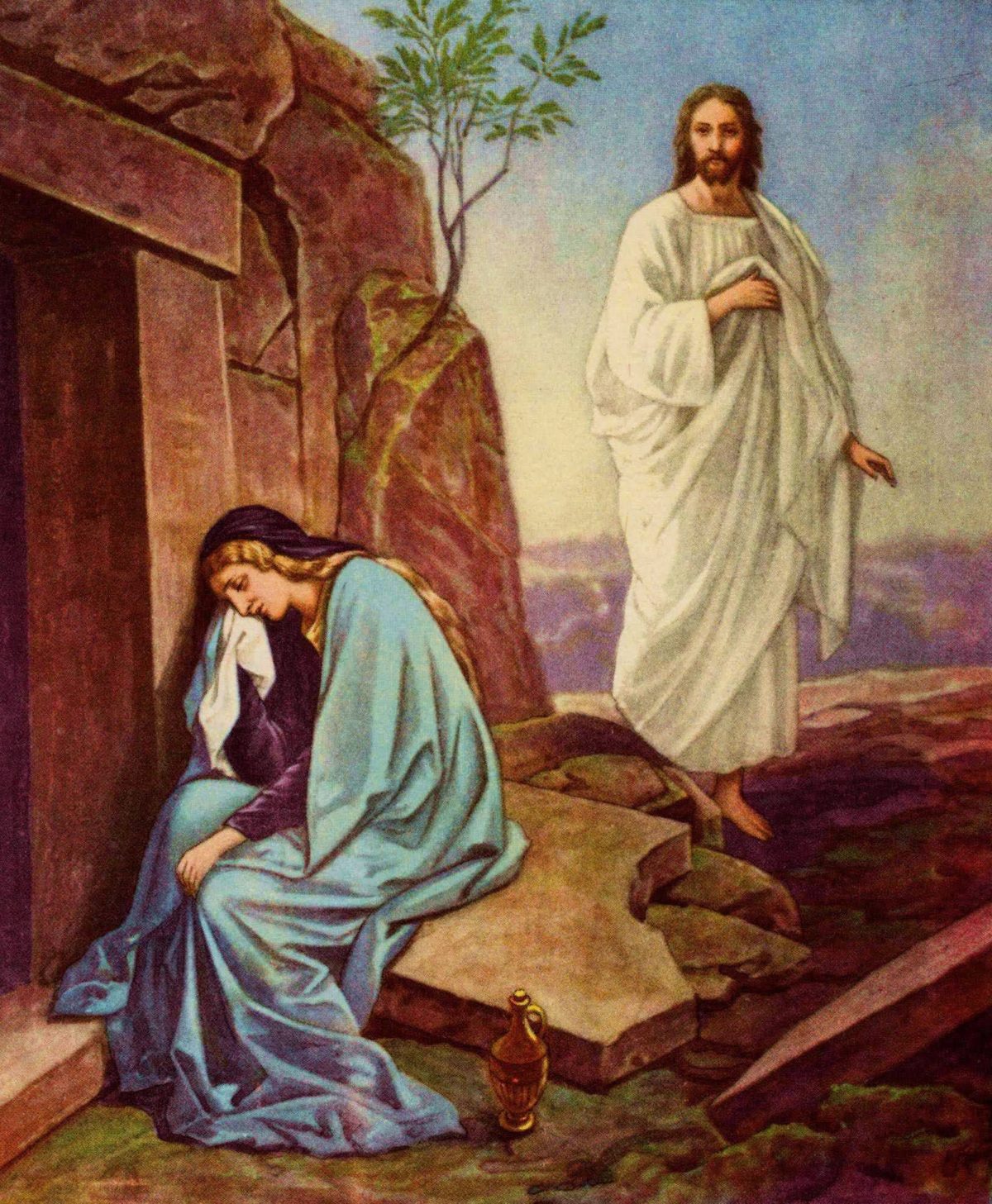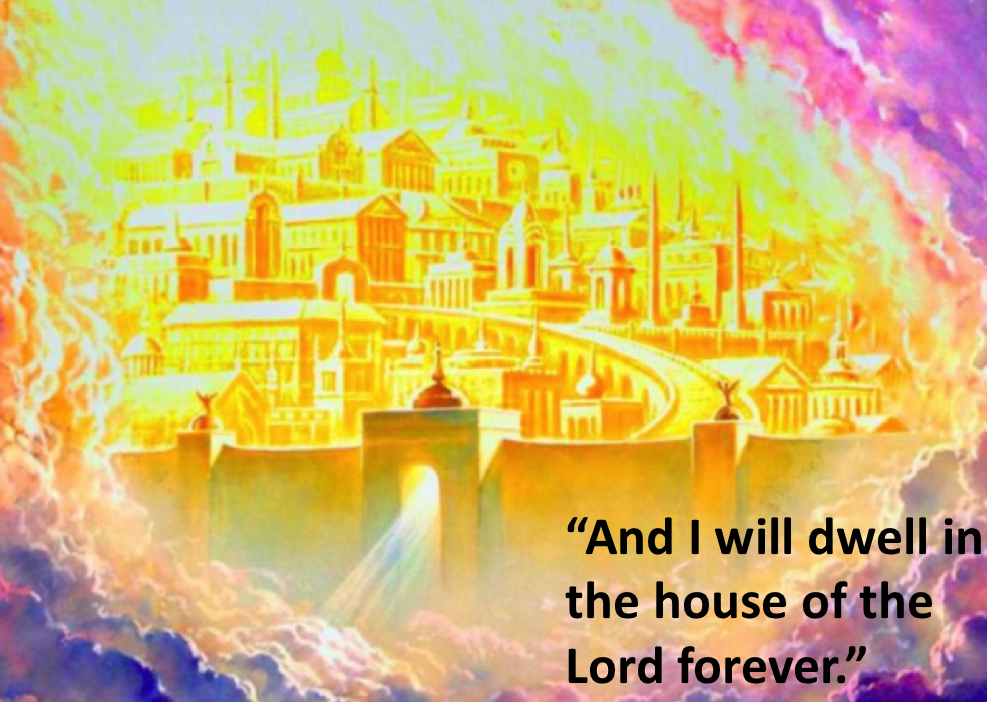“Now the first day of the week Mary Magdalene went to the tomb early, while it was still dark, and saw that the stone had been taken away from the tomb.” John 20:1
The apostle John wrote the gospel of John to non-Christians so they “may believe that Jesus is the Christ, the Son of God, and that believing you may have life in His name” (20:31). In chapters 1-12, John records seven miraculous signs of Jesus to persuade non-Christians to believe in Jesus as the Christ, the Son of God so they may have eternal life in His name. Then in John 20 he records the eighth and greatest miraculous sign – the resurrection of Jesus! The entire book of John has been leading up to this exciting event! What makes it even more exciting is that John was there to watch it all happen as an eyewitness.
Some people think Jesus was in His resurrected body for a short time on earth and was seen by only a few people. But the truth is He was in His resurrected body on earth for over a month and He was seen by over 500 people (Acts 1:1-3; I Corinthians 15:3-8). This is an incredible event and for the next few days we are going to see how Jesus’ resurrection can make a difference in our daily lives.
After His resurrection, Jesus appeared to a lot of different people at different times. Today we are going to see that He first appeared to Mary Magdalene. The resurrected Jesus is alive. He makes Himself known in peoples’ lives. The exciting thing about each of these appearances is the difference it made in people’s lives when they saw Him alive after His death and burial.
As we take a look at how the empty tomb challenged the life of Mary Magdalene, we are going to see how He can make a difference in our daily lives. The first way the risen Lord Jesus can make a difference is to DISPEL THE DARKNESS IN OUR LIVES WITH THE LIGHT OF HIS RESURRECTION (John 20:1). The apostle John writes, “Now the first day of the week Mary Magdalene went to the tomb early, while it was still dark, and saw that the stone had been taken away from the tomb” (John 20:1). Let’s look at some important details in this one verse.
The first detail is that it was “on the first day of the week.” What is the first day of the week? Sunday. Interestingly, “for the Jews, Sunday (the day after the first Sabbath following Passover cf. Leviticus 23:11) would be the Feast of First Fruits. On this day the Jews would present the first sheaf of the barley harvest to the Lord in the Temple. This offering was both an expression of gratitude and an expression of faith that a full harvest was about to follow. It is significant that Jesus rose from the grave on the Feast of First Fruits. And so Paul presents Christ as the ‘first fruits’ of the resurrection (I Corinthians 15:20-23).“ 1
In the Old Testament, believers worshiped God on the Sabbath which was Saturday. But in the New Testament believers got together on Sunday because that was the day of Jesus’ resurrection (cf. Acts 20:7). This is why believers around the world worship the Lord together on Sunday. It is resurrection day! Some believers insist that you must worship the Lord on Saturday to be a true believer. But the Bible tells us in Romans 14:5-6a that it doesn’t matter what day or night of the week you worship because we are no longer under the regulations of the Old Testament Law anymore (cf. Romans 10:4; Galatians 3:24; 4:5). So you could worship the Lord together on a Wednesday night if you wanted to. What matters is that your observance shows your commitment “to the Lord” (Romans 14:6).
The second detail is the word “early.” The Greek word [prōi, πρωί] refers to “the watch that is between 3 a.m. and 6 a.m.” 2 It is very early in the morning while it is still dark. The reason Mary and other women [note plural “we” in verse 2, cf. Mark 16:1; Luke 24:1,10) got up early to go to the tomb was because it was a tradition of the Jews to go to the tomb for at least three days after the person was buried to take care of the body and make sure all the spices were in the right places. They couldn’t go on the Sabbath day, so they had to wait until Sunday. I also believe Mary was eager to go to the tomb so early because of her love and devotion for Jesus, living and dead, which was based on her gratitude for His delivering her from bondage to Satan (cf. Mark 16:9; Luke 8:2). She had been an observer at the cross and now was the first person at the grave. 3
So as early as she could get up on Sunday while it was still dark, Mary Magdalene went down to the tomb. She, being a agile young woman, ran ahead of the other women and came to the tomb first, and discovered that the tomb had already been opened. 4
The third detail to observe is that “it was still dark.” This reference to it being “dark” may refer to both the physical darkness of the morning and the emotional and spiritual darkness that Mary was probably experiencing.Mary no doubt was stricken with grief by Jesus’ sufferings and death. After all, this was the Messiah-God who had healed her from demon possession (cf. Mark 16:9; Luke 8:2). He wasn’t supposed to die like this! Mary had no idea what had already happened that Sunday morning. So this was a very dark morning for her emotionally and spiritually.
What about you? Is this a dark day for you? Is your life filled with doubt and uncertainty in light of the coronavirus? Are you struggling with negative attitudes this week? You may not admit it to anyone else, but you may be thinking, “I wouldn’t be around me this week if I were honest about it.” Some of you may be struggling with your faith. You think, “I hear other people talk about faith and how great faith can be and how it makes a difference in their lives but if I was really being honest, I’d have a lot of question marks about it. I’m not a very trusting person.”
The fourth detail to notice is that John says, “the stone had been taken away from the tomb.” The word for “taken away” [ērmenon, ἠρμένον] means “to lift up and carry away.” 5 It conveys the idea of being “tossed aside.” It was not slowly rolled away. It was thrown aside by the angel of God when he arrived (cf. Matthew 28:2). The power of God tossed this stone aside! This is probably why Matthew tells us the Roman guards shook with fear and became like dead men (cf. Matthew 28:4). I would have done the same!
When the stone was thrown aside, it was not so Jesus could come out of the tomb. Jesus in His resurrected body went through the grave clothes that surrounded Him. Jesus in His resurrected body had the power to go through doors and into rooms without the doors being opened. So I’m suggesting that Jesus had already come out of the tomb before the stone was thrown aside. The stone was removed so the disciples could come into the tomb and see that it was empty. This is what makes Christianity distinct from all other religions. The founders of all other religions are still dead in their graves, but Christians worship a Jesus Christ that left an empty tomb behind Him! We worship a Jesus Christ who rose from the dead and remains alive today! Hallelujah!
If you are struggling in the dark with bad attitudes, doubts, or your faith, the resurrection power of Jesus Christ can change all of that. The same power that brought Jesus back to life can also resurrect a joyful attitude in you and replace your doubts with an unwavering confidence in Jesus and His promises. His resurrection power can revitalize your faith so that all fear is gone and His joy can overflow in your life.
If part of your struggle in the dark is with sin and shame, please know that Jesus’ resurrection power guarantees unlimited forgiveness in Christ to all who believe in Him. You may think your sin is too great for God to forgive. You may believe shame-based lies that say no one could accept or love you as you are. This is not true. Listen to God’s voice of truth: “But God demonstrates His own love toward us, in that while we were still sinners, Christ died for us” (Romans 5:8). God loved you so much He sent His Son to die in your place when you were still an ungodly sinner. God loved you at your worst. He did not wait for you to clean up your life. He loved you just as you are. God loves you regardless of what you have done or what others say or think of you.
The risen Lord Jesus now invites you to come to Him just as you are to receive His forgiveness. The Bible says, “Everyone who puts his trust in Christ will have his sins forgiven through His name” (Acts 10:43). The word “everyone” includes the worst and the best of people. It includes people of all faiths. It does not matter if you are a Muslim, Hindu, Buddhist, Atheist, Agnostic, Protestant, Catholic, Jew, or Universalist, Jesus invites you to believe or trust in Him alone to receive His unlimited forgiveness.
The Bible says the moment we believed in Jesus alone, “He forgave all our sins. He canceled the record of the charges against us and took it away by nailing it to the cross” (Colossians 2:13-14). No one can successfully condemn you now because Christ was condemned to death for your sins, removing your guilt ( Romans 8:34b). Jesus was raised to life, satisfying God’s demand to punish your sins (Romans 8:34c). Jesus is now at the right hand of God the Father defending you against all accusations (Romans 8:34d). And Jesus intercedes for you that your faith won’t fail, you won’t give up, so that you can encourage others (Romans 8:34e; cf. Luke 22:32).
Hallelujah! Jesus is alive, and we who believe in Him are forgiven of all our sins – past, present, and future! The darkness is gone because the Son is risen! Oh let us worship our risen Savior together!!!
Prayer: My risen Lord Jesus, I worship You this day because You have conquered sin, death, and the devil through Your death and resurrection. The darkness is gone because the Son is risen! You alone are my risen Savior, Lord Jesus! There is none like You. Even when I have dark days filled with doubt, fear, and shame, You are still alive and You are with me and love me more than I could ask or imagine. Thank You for dispelling the darkness on that first Sunday after Your death and burial. And thank You for continuing to dispel the darkness in this world through Your gospel of grace. In Jesus’ name. Amen.
ENDNOTES:
1. J. Carl Laney, Moody Gospel John Commentary (Chicago: Moody Press, 1992), pg. 358.
2. Walter Bauer,A Greek-English Lexicon of the New Testament and Other Early Christian Literature: Third Edition (BDAG) revised and edited by Frederick William Danker (Chicago: University of Chicago Press, 2000 Kindle Edition), pg. 892.
3. Edwin A. Blum, The Bible Knowledge Commentary Gospels, Editors John F. Walvoord and Roy B. Zuck, (David C Cook, 2018 Kindle Edition), pp. 695-696.
4. J. Dwight Pentecost, The Words and Works of Jesus Christ (Grand Rapids: Zondervan, 1981), pg. 496 cites J. W. Shepard, The Christ of the Gospels (Grand Rapids: Eerdmans, 1946), pp. 611-612; cf. Laney, Moody Gospel John Commentary, pg. 358.
5. Walter Bauer, A Greek-English Lexicon of the New Testament and Other Early Christian Literature: Third Edition, pg. 28.









